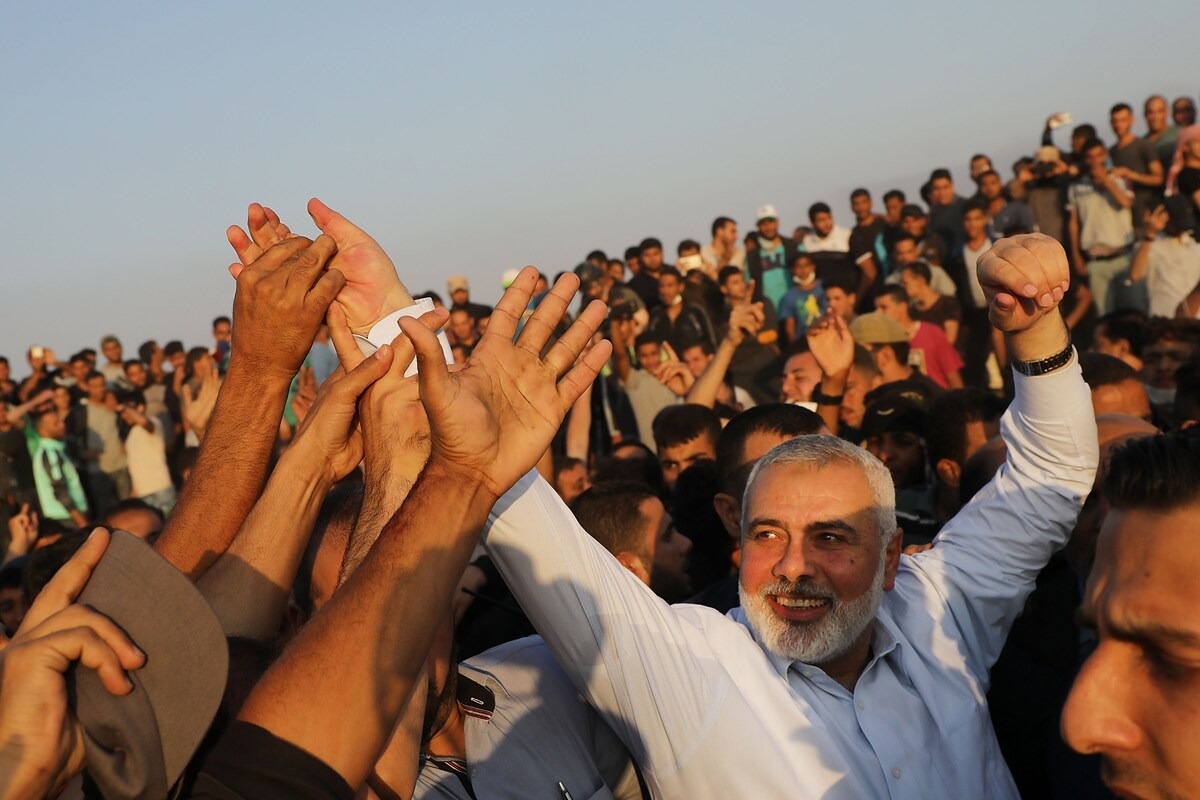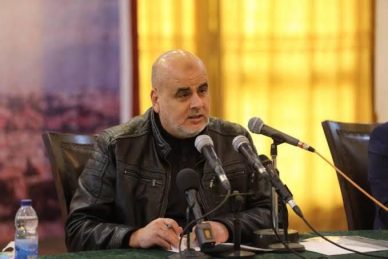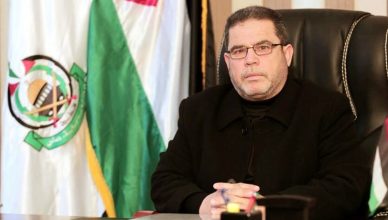GAZA, (PIC)
The great national leader Ismail Haneyya has passed away, but his legacy will continue to inspire future generations. Haneyya was one of the rare few who combined both political and social personas, earning the love of his family, neighbors, and the members of his Movement, as well as the respect of fair-minded people from his nation and around the world.
Haneyya was not just a political leader; he was also a humble and active person, an avid sports enthusiast, a loving family man, and a kind neighbor who shared in their joys and sorrows. His big heart made him forgiving, always putting the public interest above his own.
His relationship with family and neighbors
Ismail Haneyya was a symbol of a caring father, a compassionate grandfather, and a good neighbor. In a circulated video, daughter-in-law mourned him, recalling her two daughters who had been martyred.
With tears in her eyes, she recounted how her daughters, Amal and Mona, had insisted on leaving Gaza to escape the horrors of war and to reunite with their grandfather, “Abu al-Abed.” But the steadfast mother calmed them, saying, “We live with the people, and we die with the people, just like everyone else.”
Her two daughters were eventually martyred, just like many other children. The grieving mother addressed her daughters, saying, “Your grandfather has come to you himself, so welcome him warmly.”
His eldest son, Abdul Salam, also mourned him, saying, “He achieved the martyrdom he always wished for.” He emphasized that “his blood is not more precious than the blood of our people’s children, nor more valuable than any tear shed by a mother for her martyred son.”
Abdul Salam added that his father’s last advice was a call for national unity, which he had always aspired to, and to work towards ending the aggression against the Palestinian people.
Haneyya was beloved by his neighbors as well. One elderly neighbor, crying, lamented, “I wished my children would die before him… he was so kind to us. Since I heard the news, I haven’t stopped crying.”
She went on to recall his kindness, humanity, and his support for his neighbors in both good times and bad. Another neighbor described him as “like a father to us. He raised us and had a significant impact on our lives.” He added that Haneyya was a rare individual, not easily found.
In a gesture of love and loyalty, some neighborhood boys stood on the rubble of Haneyya’s house, which had been destroyed by an airstrike in the Shati refugee camp, taking commemorative photos while holding his picture and raising victory signs. These images symbolize that the generations raised by Haneyya will continue to follow in his footsteps.
Tragically, the first to join Haneyya in martyrdom were the two journalists, Ismail Al-Ghoul and Rami Al-Rifi, who had photographed the boys. Their car was directly targeted after they left the site.
His passion for football
In previous interviews, the late leader Ismail Haneyya recounted his journey in sports, filled with memories of playing football and youthful energy. He began playing football in 1976 with the youth team of Al-Shati Services Club, later advancing to the first team in 1981. He eventually joined the Islamic Association team, participating in all local championships in the Gaza Strip until he stopped playing after his arrest in 1987.
Haneyya fondly remembered that period, saying, “I had many happy football moments at Al-Shati Club and the Islamic Association, alongside many stars and teammates I still remember. We share beautiful memories at Al-Yarmouk Stadium every Wednesday, our weekly meeting time. What stood out during that time was the love and friendship between us.”
A rare photo shows Ismail Haneyya playing football with the Islamic University team in the 1980s. The picture is from 1986 when “Abu al-Abed” was a member of the Islamic University’s football team.

Haneyya played as a midfielder for the Islamic Center Club and achieved sporting successes with the Islamic University team, which included some of the top players from Gaza’s clubs at the time.
Imam and preacher
Alongside his political work, Ismail Haneyya was a social leader and educator, often leading prayers during Tarawih. The late leader was known for his sweet voice, mastery of Tajweed (the art of Quranic recitation), and his melodious recitation of the Quran.
Videos show that in his prayers, Haneyya often selected verses about gratitude, patience, trials, empowerment, and martyrdom, guiding his congregation to a state of spiritual purification while recalling the martyrs and the righteous.
Activists shared one of his recitations where he read verses from Surah Al-Imran, speaking about the virtues of martyrdom, as if he were foreshadowing his own passing.
Known for his eloquence and linguistic strength, Haneyya regularly delivered Friday sermons wherever he could. His sermons were not limited to Gaza’s mosques; he also delivered them in various countries he visited, including at the Uqba Mosque in Kairouan, Tunisia, in 2011, and his famous sermon from the pulpit of Al-Azhar Mosque in Egypt in 2012.
Voluntary resignation from the premiership
Haneyya became the Prime Minister of the Palestinian government formed by Hamas after the Change and Reform List, which he led, won the majority of seats in the Palestinian Legislative Council in the 2006 elections.
Due to the internal division that occurred a year later, the Palestinian Authority formed a government in the West Bank, while Haneyya continued as the head of the legitimate government based in Gaza.
Despite the allure of the position and the political and social status it entailed, Haneyya was committed to opening the door to national reconciliation and expressed his willingness to step down from his post for the sake of unity.
In 2014, he announced his decision to resign from the premiership in favor of a national unity government. In his resignation letter, he wrote, “Today, I voluntarily hand over the government out of concern for the success of national unity and resistance in all its forms in the coming stage.”
Ismail Haneyya was an example of sacrifice and devotion, having lost dozens of his relatives in the “Al-Aqsa Flood” operation, including three of his sons, his sister, and some of his grandchildren. He then passed away, joining them as a martyr after a life filled with struggle and dedication.














